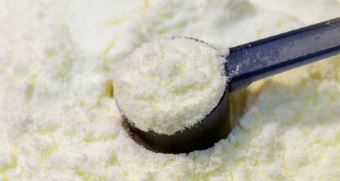
Powdered milk is a pantry staple for many households due to its long shelf life and versatility. However, even this convenient product has an expiration date. Accidentally ingesting expired powdered milk might leave you wondering about its effects on your body.
Here’s what you need to know.
1. How Powdered Milk Expires
Powdered milk is made by removing moisture from milk, extending its shelf life compared to fresh milk. However, it can still deteriorate over time, especially if exposed to heat, moisture, or air. While expired powdered milk may not always pose immediate risks, it’s essential to understand how spoilage occurs.
Over time, the fats in powdered milk can oxidise, leading to a rancid smell or taste. This change doesn’t necessarily indicate harmful bacteria but can make the milk unpleasant to consume. Additionally, if stored improperly, expired powdered milk can harbour bacteria or mould, posing health risks.
2. Possible Side Effects of Ingesting Expired Powdered Milk
The effects of consuming expired powdered milk largely depend on how far past its expiration date it is and how it was stored:
Mild Cases: If the powdered milk has just passed its expiration date and smells fine, you may not experience any adverse effects. At worst, it may taste stale or slightly off.
Digestive Discomfort: If the milk has begun to spoil, you may experience mild symptoms such as nausea, bloating, or an upset stomach.
Food Poisoning: Consuming powdered milk contaminated with bacteria (like Salmonella) can lead to food poisoning, characterised by symptoms such as diarrhoea, vomiting, fever, and abdominal cramps.
Allergic Reactions: For individuals sensitive to mould, ingesting powdered milk that has been exposed to moisture can trigger allergic reactions like rashes or breathing difficulties.
3. What to Do If You’ve Consumed Expired Powdered Milk
If you realise you’ve consumed expired powdered milk, monitor your symptoms closely. Here’s how to handle the situation:
No Symptoms: If you feel fine, drink plenty of water to help flush out any potential toxins.
Mild Symptoms: Rest and hydrate. Over-the-counter remedies, such as antacids or anti-nausea medication, can alleviate discomfort.
Severe Symptoms: If you experience vomiting, diarrhoea, or fever that persists, seek medical attention immediately. Food poisoning can lead to dehydration, which may require professional care.
4. Preventing Future Incidents
To avoid accidentally consuming expired powdered milk, follow these tips:
Check Expiration Dates: Always check the expiry date on the packaging before use.
Store Properly: Keep powdered milk in a cool, dry place and ensure the container is sealed tightly after each use. Exposure to air and moisture accelerates spoilage.
Inspect Before Use: Look for signs of spoilage, such as a clumpy texture, a foul smell, or an unusual taste.
Use FIFO Method: Arrange your pantry using the “First In, First Out” method, ensuring older items are used before newer ones.
While ingesting expired powdered milk doesn’t always result in severe consequences, it’s best to exercise caution. Proper storage and regular checks can help you avoid unpleasant experiences. If in doubt, remember the golden rule: “When in doubt, throw it out.” It’s better to be safe than sorry when it comes to your health.
Read Full Story

















![[Video] Rangers and Manchester United hooligans clash and throw bottles at each other](https://sportal365images.com/process/smp-images-production/pulse.com.gh/24012025/c15ebd6a-e7e6-49b0-96c9-a58accaf24eb.png)
Facebook
Twitter
Pinterest
Instagram
Google+
YouTube
LinkedIn
RSS